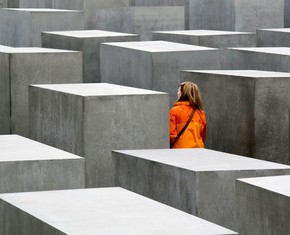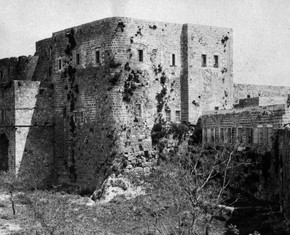The views expressed in our content reflect individual perspectives and do not represent the authoritative views of the Baha'i Faith.
One of the greatest heroes of the Baha’i Faith, Mulla Husayn – the first to accept the Bab, the forerunner of the Baha’i revelation – came to his new belief as a former Muslim cleric.
Mulla Husayn delivered the message of the Bab’s advent as the Promised One to multitudes throughout 19th century Persia, withstood almost universal rejection and persecution by the clergy and government leaders, and was cruelly martyred just five years after the Bab declared his mission.
RELATED: The Story of the Bab and His Radical New Faith
Mulla Husayn’s Mis-Education
Before Mulla Husayn accepted the truth of the Bab’s message, he was an accomplished scholar and cleric with a wide reputation throughout 19th-century Persia as one of the most learned in the Islamic Faith. A fascinating biography of his life titled Mulla Husayn, Disciple at Dawn, by Ruhu’llah Mehrabkhani, describes two interesting incidents that show how religious schools and a solely religious education can become barriers to true spiritual enlightenment.
The first incident the book describes occurred when Mulla Husayn, walking with a friend, passed by a religious school for the training of clergy. As he looked at the school, he recited a couplet of poetry:
Never from this school has come learning,
This house of ignorance is fit for burning.
This surprised his friend, and he questioned Mulla Husayn as to why he would say such a thing about a respected school, especially since they produce clerics like Mulla Husayn. Mulla Husayn replied, “If it were not for the education I received in these schools, I would not have argued with my Lord.”
Why would Mulla Husayn, this hero of the new Babi revelation, argue with the Bab? The answer lies in his account of what happened in their fateful initial encounter.
On the evening when the Bab made his declaration as the new manifestation of God for this age, at first Mulla Husayn responded doubtfully, and did not immediately accept the Bab’s claim. Only after the Bab extemporaneously wrote a lengthy treatise in response to some of Mulla Husayn’s unasked questions did Mulla Husayn accept the Bab and become the ardent first believer of his new revelation.
It seems that Mulla Husayn blamed the religious education he received for filling his mind with erroneous thoughts that resulted in his initial questioning of the truth.
The Baha’i Teachings and Universal Compulsory Education
Clearly, the Baha’i writings put a great emphasis on the importance of education, including lessons in religion and morality. Baha’u’llah, the prophet and founder of the Baha’i Faith, wrote that every single person on the planet deserves an education of the highest quality: “Knowledge is as wings to man’s life, and a ladder for his ascent. Its acquisition is incumbent upon everyone.” The primary Baha’i principles include the concept of universal compulsory education for every one of the world’s children.
Baha’u’llah also wrote: “Regard man as a mine rich in gems of inestimable value. Education can, alone, cause it to reveal its treasures, and enable mankind to benefit therefrom.”
The Baha’i writings make it abundantly clear that education, both spiritual and scientific, is necessary for the progress of humanity towards a just and peaceful world — one in which science benefits all humanity, not just a few. Abdu’l Baha, the son of Baha’u’llah and his designated successor, wrote:
Study the sciences, acquire more and more knowledge. Assuredly one may learn to the end of one’s life! Use your knowledge always for the benefit of others; so may war cease on the face of this beautiful earth, and a glorious edifice of peace and concord be raised. Strive that your high ideals may be realized in the Kingdom of God on earth, as they will be in Heaven.
However, religious education can also have a negative impact on students if it promotes closed-mindedness, exclusivity, fanaticism, disunity, and the like. Then, it can become a barrier to the acquisition of true spiritual knowledge. Another episode from Mulla Husayn’s life demonstrates this insight.
RELATED: Religion: Toxic and Destructive, or Ultimately Useful?
How Education Can Deceive
Soon after being enkindled with the love of the Bab’s message, Mulla Husayn traveled to the Persian city of Isfahan, home to many religious institutions. Due to his previous visits and his reputation as a respected scholar, Mulla Husayn had become well-known in Isfahan, and many of the clergy were eager to invite him into their schools so he could join in their discussions.
However, when Mulla Husayn brought them the news of the Bab and the advent of his new revelation, the clergy, teachers, and students alike rose against him. The only one who accepted the truth was a man of no education occupied as a sifter of wheat. Later, the Bab wrote:
Isfahan, that outstanding city, is distinguished by the religious fervor of its Shi’i inhabitants, by the learning of its divines, and by the keen expectation, shared by the high and low alike, of the imminent coming of the Lord of the Age, the Promised One. In every quarter of that city, religious institutions have been established. And yet, when the Messenger of God had been made manifest, they who claimed to be the repositories of learning and the expounders of the mysteries of the Faith of God rejected His Message. Of all the inhabitants of that seat of learning, only one person, a sifter of wheat, was found to recognize the Truth, and was invested with the robe of Divine virtue.
Common stories like this one occur whenever a new messenger of God appears. Numerous writings of the Baha’i Faith and other Faiths condemn the actions of a fanatic clergy. When a messenger of God reveals a new belief system, religious leaders often reject it, and incite others to do so as well. Story after story exists of some of the atrocities that were, and in some cases still are, committed against these prophets and their followers.
This incident shows how often those with little or no education become the chosen ones of God; transforming their inner and outer lives into towers of faith and exemplars of virtue, sacrifice, and courage.
Baha’u’llah made it clear that when it comes to a divine education and spiritual certitude, formal education is not the most important thing. He wrote:
The understanding of His words and the comprehension of the utterances of the Birds of Heaven are in no wise dependent upon human learning. They depend solely upon purity of heart, chastity of soul, and freedom of spirit. This is evidenced by those who, today, though without a single letter of the accepted standards of learning, are occupying the loftiest seats of knowledge; and the garden of their hearts is adorned, through the showers of divine grace, with the roses of wisdom and the tulips of understanding. Well is it with the sincere in heart for their share of the light of a mighty Day!
Of course, some members of the clergy do become outstanding, courageous, and even heroic disciples when they receive news of a new revelation — for example, Mulla Husayn himself. Studying their lives and those of the early heroes of the Baha’i revelation is a rewarding endeavor that helps our spiritual education as we strive to grow closer to God.
















Comments
Sign in or create an account
Continue with Googleor